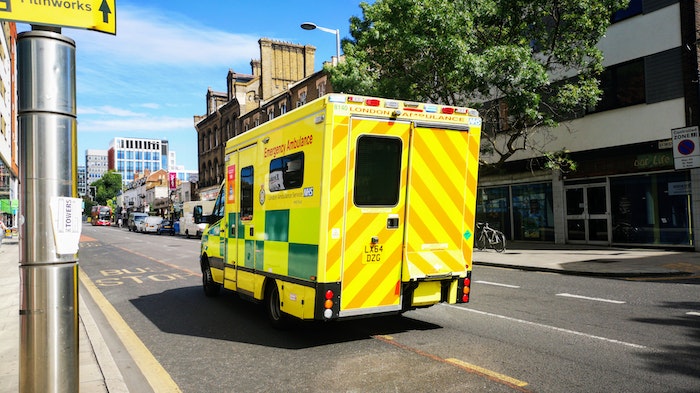Rehab treatment for alcohol and drug abuse in Tunbridge Wells is available to those who need it.
Alcohol and drug addiction impacts many people across the town.
This shows the need for rehab in the area.
Being in Kent, the Tunbridge Wells population is included in the 295,000 people that are drinking above the “safe limit”. (1)
There were 130 drug crimes in Tunbridge Wells in 2021. (2)
If you’re struggling with drug addiction and alcohol addiction, there are rehabilitation services available to help you. Read on to find out which treatment options would be most suitable.
Get the indispensable help of a drug and alcohol rehab in Tunbridge Wells by calling us today on 0800 140 4690

There are nine main types that most physical addictions fall into that rehab can treat:
There are also five main types of behavioural addictions, but rehab can treat almost any addiction:
Addiction is different from other neurological disorders, and is determined by the 4 Cs – compulsion, craving, consequences and control.
Rehab can help you understand the root causes that led you there, and how to prevent relapse.
Poor mental health, trauma, having parents who abused substances when you were a child, and pressure from friends can all make you more likely to develop an addiction and wind up needing rehab.
A study into a people with particular gene called CHRM2 has supported the theory that your genetics can make you more likely to fall into addiction.

If you’re currently in addiction, you may have gone through four stages as your condition has worsened – experimentation, regular use, preoccupation and dependency.
Usually by the time people end up at rehab, they’re already dependent.
Initially you may have just tried a behaviour or substance, and this grew into more frequent use.
Following this, you may have started thinking about it all the time, and finally, landed in a place where you feel you can’t cope without it.
Rehab can put a stop to the progression of addiction.
Accepting your past, and believing in your ability to recover a vital to your recovery at rehab.
This mindset will carry you through as you encounter hurdles in your recovery.
There are 5 rules you’ll need to keep in mind as you tackle drug addiction or alcohol addiction at rehab:
When recovering from a crisis, 7 Rs help people to cope and come out stronger.
These can be utilised while recovering from addiction at rehab:
Recovery will take you through the following stages:
These are all necessary phases of healing at rehab.
Recovery programme times will vary a lot from person to person, as everyone progresses through the rehabilitation phase at different speeds.
On average, most people begin to feel comfortable in their abstinence within six months to five years.

It’s useful to know what family interventions there are that you can use at home if one of your family member needs to go to rehab.
It’s easy to develop codependent relationships when someone has an addiction.
While this can come from a place of care, it’s not beneficial to your loved one as it can enable their use and it’s not helpful to you, only serving to exhaust you.
The traditional approach to rehab intervention is where one or two family members meet with the member who has an addiction. There will be a doctor or drug and alcohol misuse professional present too.
You stage an intervention where you outline your worries, how it’s affecting everyone, and what treatment options there are in terms of rehabilitation going forward.
Try to tease out whether your loved one knows they are addicted, and if they truly want to go to rehab.
Keep the 5 As in mind when suggesting your loved one go to rehab:
Make sure your loved one gets the support they need from a alcohol & drug rehab in Tunbridge Wells by giving our team a call on 0800 140 4690
Due to the number of treatment options available in the UK, drug and alcohol rehabs range in how much they cost.
Some come in at around £495 a day, or £14,000 for a month. This would be a more luxurious option.
It’s useful to investigate which rehab clinics are nearby so you can make a price comparison. Other clinics are more affordable and charge around £1,000 a week, or £4,000 a month.
For a more specific answer regarding how much your time at a drug and alcohol rehab facility in Tunbridge Wells will cost, call us today on 0800 140 4690

You’re right to think that health insurance often covers the cost of a stay at drug and alcohol rehab. It’s worth checking your policy documents to see what it includes.
Addiction might be mentioned under mental health or have its own section.
If you took out private insurance, remember that claiming rehab through it will probably increase the cost of your insurance each year going forward.
If your health insurance was provided by your place of employment, then you’ll most likely be under obligation to tell your employer that you’re claiming treatment for addiction rehabilitation.
Let us help you figure out how to go to drug and alcohol rehab in Tunbridge Wells through your health insurance by calling us for free on 0800 140 4690

There are some instances where people enter drug and alcohol rehab and have their place funded by the NHS.
While you might be eligible for this, it’s useful to keep in mind that many people apply for this funding and you’ll be competing for the grant.
To be eligible for NHS rehabilitation treatment, you’ll need to be from a low income household (i.e. on benefits or a low wage).
You’ll also need to be attending local council-funded drug and alcohol services regularly, and able to provide evidence that you’re committed to your recovery programme.
If you’re in this situation you can then apply to the local council for funding. Your local drug and alcohol worker will help you to do this.
We are here to help you beat addiction, no matter your situation. We’re happy to guide you through the process of applying for NHS funding for rehab when you call us on 0800 140 4690

A stay at a drug and alcohol rehab in Tunbridge Wells will last around 28 days for the vast majority of residents at inpatient rehab centres. This is the optimum amount of time.
You’ll spend the first week or so managing your withdrawal experiences during the detox process before developing the skills and doing the work that will equip you to remain sober.
A 10-day inpatient detox at rehab is available to some people who need to wean off alcohol or heroin. This allows your to overcome the physical aspect of being dependent on alcohol or other substances.
Still, it’s sensible to stay for longer in order to benefit from the psychological input you require.
Get a more personalised prediction of how long your time at a drug and alcohol rehab in Tunbridge Wells will take by calling us on 0800 140 4690
Drug and alcohol rehabilitation options are available through the NHS or private clinics.
NHS rehabilitation is a provision on offer to anyone in the Tunbridge Wells community who needs support around addiction.
There is usually limited counselling provision, 12 Step groups, drop-in clinics, and needle exchanges, alongside community alcohol detoxification efforts.
Private rehab clinics are in place to support people who need or want to quit a substance, alcohol or behavioural addiction, and they provide a more comprehensive recovery programme.
Rehab staff will provide top-of-the-range treatments that will help you stay sober.
You get access to any therapies required including science-based and alternative treatments, with around the clock care.
Let us help you select the best possible alcohol & drug rehab facility in Tunbridge Wells for you by calling us today on 0800 140 4690

Whether you go to an inpatient or outpatient drug and alcohol rehab service really depends on the rehab treatment you require.
Inpatient services are private drug and alcohol rehab clinics where you go to stay as a resident for a number of weeks to be treated with a variety of therapies and healing sessions every day to become sober.
Inpatient rehab centres are often necessary for those trying to quit severe alcohol or drug addictions.
Outpatient services are how council-funded drug and alcohol clinics are run. You remain living at home but go to the clinic for one-to-one or group sessions. This approach is more casual.
To find out what form of drug and alcohol rehab in Tunbridge Wells will be best suited to your needs, call us today on 0800 140 4690
Research has shown that people who recover from alcohol take two or fewer attempts to quit.
Depending on whether you have any mental health issues, a good support network and what kind of rehab treatment you receive, you may have an easier or a harder time in recovery.

Withdrawal from alcohol can be lethal in extreme cases, so it’s important to be cautious before deciding to quit suddenly.
Rehab can offer medication, supervision and therapy to ensure you’re safe and supported throughout your alcohol detox.
The elderly, those with a past history of alcohol withdrawal seizures, and people who have physical or mental health illnesses are more likely to have dangerous alcohol withdrawal symptoms.
Addiction is classified as a ‘chronic relapsing disorder’, and is a part of alcoholism.
40 – 60% of people with any addiction will relapse while in recovery. Rehab can bring down these chances.
Usually, it takes two or fewer attempts to quit.
The right support after rehab can greatly increase your chances of success.

CBT is a very effective rehab treatment for alcoholism and for all addictions.
83.87% of people in recent research made a full recovery, one of the best recovery success rates seen in addiction treatment.
Only 23.80% of people in addiction in general treated with cognitive behavioural relapsed in another study.
These recovery success rates are much better than the average, which is why rehabs utilise this type of therapy in addiction recovery.
Rehabs can provide a few medications for alcoholism:
The three pillars of recovery at rehab will help you develop a strong mentality, body and general state of health:
A good overall health will put you in good steed for a strong recovery.

If you’re wondering the best way to become sober if you’re addicted to alcohol, then an alcohol detox phase in Tunbridge Wells is going to suit you.
Withdrawal from alcohol can be dangerous.
Alcohol withdrawal symptoms rehab can treat include:
There is a rehab detox period of around 10 days where a doctor will prescribe medication (Librium).
This begins as soon as you enter the clinic and is the time you’ll safely wean off the alcohol.
Once through the first week at rehab, you’ll then start to do the emotional and psychological work to overcome addiction.
Each day at rehab you’ll take part in group sessions where together with other residents you explore what alcohol has meant in your life and what you want from life going forward.
Beat your alcohol abuse with the help of an alcohol rehab in Tunbridge Wells by calling our team on 0800 140 4690

As a resident at a drug and alcohol rehab in Tunbridge Wells, you’ll receive a comprehensive rehab programme including many different psychological and alternative treatments.
The NHS does provide drug and alcohol therapy, but there’s often a long waiting list to be seen, as they don’t receive enough funding to meet the demand.
Generally speaking, during the rehabilitation phase you can expect to experience:
The specific therapies offered to you during your addiction treatment programme will of course depend on the expertise and specific rehab facilities available to your chosen rehab centre.
Access any of these powerful treatments at a drug and alcohol rehab in Tunbridge Wells by calling us today on 0800 140 4690

When you go to drug and alcohol rehab in Tunbridge Wells, you’ll be assessed.
This is so that rehab staff will understand what to offer you that will specifically suit your needs.
It might come to light that you have a mental health condition as well as an addiction. Rehab can help you discover this.
People living with PTSD, depression, anxiety, bipolar , and schizophrenia are shown to be more likely to turn to drugs & alcohol to try and ease the symptoms of their mental health.
When this happens for a long period of time, an addiction can develop.
The mental health problems that most people at rehab have are borderline personality disorder and anti-social personality disorder.
From the other point of view, people who may not have had a mental health condition can develop one from using drugs & alcohol because of how they impact brain chemistry.
When this happens, you’ll likely be described by staff as having a dual diagnosis.
Rehab staff will then prepare a specialised addiction treatment program which will address both your addiction and the mental health condition alongside it.
Find out how a drug and alcohol rehab in Tunbridge Wells will work to support treatment for addiction alongside improving your mental health by calling our team today on 0800 140 4690

It’s critical that you have a solid relapse prevention plan when you leave drug and alcohol rehab in Tunbridge Wells.
This is instrumental in supporting your sobriety. The plan will include an outline of how to approach various parts of your life back at home, including:
Speak to us today to find a rehab in Tunbridge Wells that offers complimentary aftercare.
Call our 24 hour helpline on 0800 140 4690.

When you leave drug and alcohol rehab, there might come a time you want to reach out to other support services in Tunbridge Wells. The organisations linked to addiction and recovery in the area are:

Rehab 4 Addiction is an organisation offering counselling and referral services to addicts and their families in Tunbridge Wells.
We work with private clinics offering drug and alcohol treatment programmes on a residential basis. We also advise clients regarding outpatient drug and alcohol rehab services.
Contact us today for more advice on 0800 140 4690
Rehab 4 Addiction officers a range of addiction treatments in Kent, including Maidstone, Gravesend, Canterbury, Dover, Margate, Folkestone, Gillingham, Ramsgate, Tunbridge Wells, Sevenoaks and Dartford.
(1) https://www.kentlive.news/news/health/kent-most-alcohol-dependent-adults-5631635
 Substance addiction, also referred to as Substance Use Disorder (SUD), is a chronic and relapsing brain disease that affects both physical and psychological functioning. It develops when repeated exposure to drugs or alcohol alters brain chemistry, particularly the reward and motivation systems, leading to compulsive substance use despite harmful c .... Read More
Substance addiction, also referred to as Substance Use Disorder (SUD), is a chronic and relapsing brain disease that affects both physical and psychological functioning. It develops when repeated exposure to drugs or alcohol alters brain chemistry, particularly the reward and motivation systems, leading to compulsive substance use despite harmful c .... Read More
 Addiction recovery is a deeply personal and individual journey. The decision to seek help for your drug or alcohol addiction and rebuild your life generally happens quietly, sometimes after years of struggle. But while recovery starts at an individual level, it’s rarely successful in isolation. Behind most long-term recovery stories is a time whe .... Read More
Addiction recovery is a deeply personal and individual journey. The decision to seek help for your drug or alcohol addiction and rebuild your life generally happens quietly, sometimes after years of struggle. But while recovery starts at an individual level, it’s rarely successful in isolation. Behind most long-term recovery stories is a time whe .... Read More